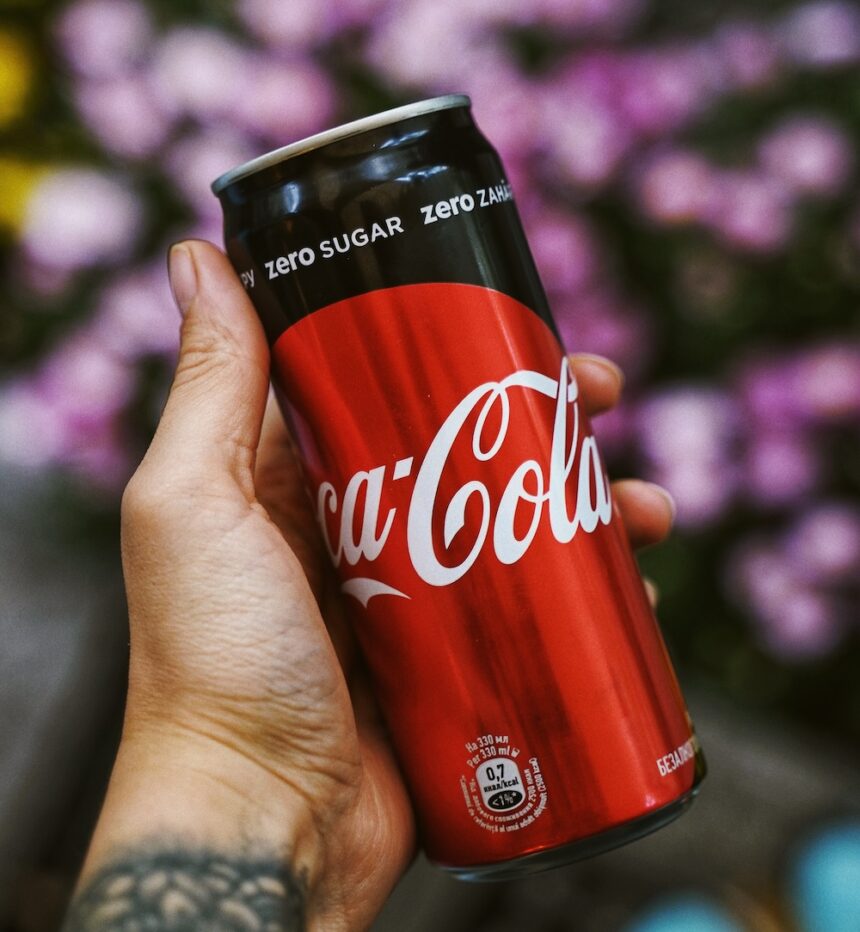People reach for diet soda because they can satisfy their sweet tooth without consuming too many calories.
What’s the secret behind a sweet, sugar-free can of soda? Artificial sweeteners, like aspartame. And while it certainly gives diet soda its sweet flavor, is it really the lesser of the two evils? Is diet coke bad for you, or can you enjoy it safely? Research says it isn’t quite as good as you thought it might be.
Why Is Diet Coke Bad for You? 14 Important Side Effects
Aspartame Tricks Your Brain
Even though aspartame isn’t a real sugar, it makes your brain think that you’ve just consumed sugar.
Plus, this study says that artificial sweeteners mess with your body’s innate ability to manage the calories you consume based on the sweetness level of those foods.
Diet Coke Triggers Insulin Production
You might avoid regular soda because you’re trying to avoid unnecessary sugar. A can of coke can contain up to 140 empty calories, whereas diet coke is closer to zero.
But drinking artificial sweeteners can lead your body to release insulin, according to Brooke Alpert, RD, and author of The Sugar Detox. And this study confirmed that 67% of people who drink diet soda daily had a greater risk of type 2 diabetes.
Artificial Sugars Lead to Weight Gain
Drinking diet coke can also lead to significant weight gain for two reasons.
First, artificial sweeteners trick the brain, as we mentioned above. Your body thinks it’s consuming sugar, so it moves ahead to insulin production.
The other reason, however, is more insidious. When you think you’re consuming zero calories, you justify doubling up on calorie-laden meals. So, if your coke is calorie-free, you probably think it’s okay to load up on burgers, fries, pizza, and other unhealthy options.
If you make it a daily habit of consuming two sodas a day or more, you can increase your weight gain by 500%! Does diet soda make you fat? Not directly, but indirectly, yes.
Diet Coke Increases Your Risk of Metabolic Syndrome
What’s a metabolic syndrome? It’s also known as insulin resistance syndrome, and it’s a condition in which you experience symptoms like elevated blood pressure and blood sugar levels, elevated cholesterol and triglyceride, and an increase in the waist and abdominal fat.
All in all, these symptoms pave the way for stroke, diabetes, and heart disease.
By drinking diet coke daily, you can increase your risk of metabolic syndrome by 36%.
Artificial Sweeteners Are Addictive
According to Dr. Axe, diet soda can destroy your body. What makes this worse? Artificial sweeteners can be as addictive as recreational drugs, nicotine, and alcohol. So, all of the side effects we covered so far are difficult to escape from because you become addicted to the aspartame in diet coke.
The original recipe for Coca-Cola contained cocaine. Now, instead of cocaine, we use aspartame to sweeten sugar-free Coca-Cola.
But aspartame activates the dopamine system and your brain’s reward center. Plus, when caffeine, a psychostimulant, works together with aspartame and its dopamine-increasing compound, you can develop addictive behavior.
Diet Coke May Induce Headaches
Aspartame is known to cause headaches and even migraines for certain people. This isn’t a side effect experienced by everybody.
But if artificial sweeteners can cause headaches for some people, is it possible that they’re interfering with our brain function, even without the presence of a headache?
Impairs Kidney Function
Diet coke can wreak havoc throughout your entire body, including your kidneys. This is partially due to the combination of phosphoric acid and caffeine present in diet coke.
If you make diet coke a staple in your daily diet for many years, your kidney function will suffer by 30%.
Dental Erosion
If you want to protect your pearly whites, avoid diet coke.
The citric acid present in this sugar-free beverage can wear away at your tooth enamel and lead to tooth erosion, similar to the dental conditions of both cocaine and methamphetamine users.
Can Lead to Depression
Coca-Cola marketing campaigns don’t advertise clinical depression, but with too much diet coke, depression is possible.
A daily habit of drinking four or more cans of soda can increase your risk of depression by 30%. And if you’re drinking diet coke, your risk is even higher.
The Coke and Cardiovascular Disease Connection
It might be hard to believe that diet coke can increase your risk of suffering from a heart attack.
However, studies from both the University of Miami and Columbia University are finding that drinking diet soda makes strokes and heart attacks more likely. Deaths from cardiovascular diseases are also more probable, according to this study.
Zero Calories and Zero Nutrition
You won’t consume calories with a diet coke, but you won’t get any nutrients either.
In fact, there are no nutritional benefits from diet cokes.
And unfortunately, since diet cokes are usually an excuse to overload on unhealthy calories elsewhere (in the form of junk foods, etc.), you’re probably not enjoying a very healthy, balanced diet.
Diet Cokes Interfere with Your Appetite
Marisa Peer, a behavioral psychologist, weight loss therapist, and expert in eating disorders, reminds us that “artificial sweeteners are associated with a drop in the appetite-regulating hormone, leptin.
Leptin is the hormone that inhibits hunger, so diet drinks, like diet coke, actually make you hungry and less satisfied with normal amounts of food.”
So, even if you’re avoiding calories with a diet coke, you’re only setting yourself to want more food later on.
Diet Coke Comprises Your Brain’s Defense System
Just like citric acid leads to tooth erosion, aspartame has been linked to the gradual erosion of your brain’s defense system. Antioxidants are necessary to protect your brain, but aspartame can imbalance the antioxidants in your brain.
The Dangers of Phosphoric Acid
The phosphoric acid present in diet cokes has been linked to lower bone mineral density, as well as lower bone density, thanks to the research published by Tufts University in Boston and the American Journal of Clinical Nutrition.
How to Stop Drinking Diet Sodas
Consider cutting back on the amount you drink. Or, consider making your own refreshing drinks, like smoothies, or sparkling water with added fruit, like berries, or slices of lemons, limes, and peaches. Or, you can try iced green tea, Kombucha, or Kefir tea to enjoy a fizzy beverage.
It might be hard to stop drinking diet coke cold turkey. But this article can help you make some informed decisions about diet coke and its place in your diet.
Sadly, research proves that diet coke is not a healthy choice, and it may even be worse than regular coke due to several issues, especially the ones related to artificial sweeteners or messing with your body’s natural balance. If you’re currently consuming diet sodas regularly, try the tips above to cut back and remember the health dangers related to diet sodas: that may be enough to help you cut back on diet sodas.








